Flushing inappropriate items down the toilet can lead to serious plumbing issues, environmental damage, and increased maintenance costs. Toilets are specifically designed to handle human waste and toilet paper, which are designed to break down in water. Flushing items that don’t break down or that can cause blockages can result in severe plumbing issues, unpleasant odors, and even expensive repairs. Understanding what should and shouldn’t be flushed is crucial for maintaining a well-functioning plumbing system and protecting the environment. Here’s an in-depth look at things you should never flush down the toilet.
Other Topics You Might Like
Helpful Products You Might Like
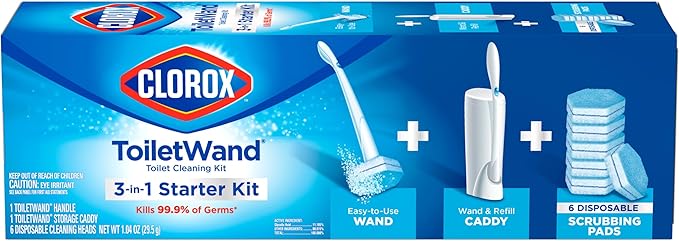
Clorox ToiletWand Cleaning Kit
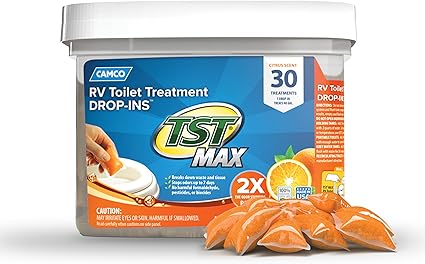
Camco RV Toilet Treatment Drop-INs
Instant Power Toilet Tank Cleaner
"(Paid Links)" 
Wipes
Many products labeled as "flushable" are not truly flushable. Unlike toilet paper, wipes are made from materials that do not disintegrate in water. They can cause significant blockages in your plumbing system, as they tend to clump together and form dense masses. This can lead to backups and overflows. Additionally, municipal sewage systems are not designed to handle wipes, leading to larger issues in the broader waste treatment infrastructure. Always dispose of wipes in the trash to prevent these issues.
Paper Towels
Paper towels are made from a stronger and more durable material than toilet paper, making them less likely to break down in water. Flushing paper towels can lead to serious clogs and blockages in your pipes. Because they do not dissolve easily, they can accumulate and cause significant disruptions in your plumbing system.
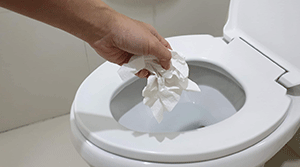
Sanitary Products
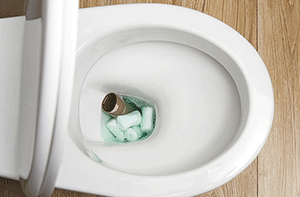
Tampons, pads, and other menstrual products are designed to absorb fluids and can expand when exposed to water. This expansion makes them highly prone to causing blockages in your plumbing system. These products can also cause issues in the sewage treatment process, leading to potential damage to public wastewater systems. Dispose of these items in the trash and consider using designated disposal bags if available.
Medication
Flushing unused or expired medications can lead to contamination of water supplies and harm aquatic life. Medications can contain chemicals that are harmful when introduced into the environment. Proper disposal involves using take-back programs, drop-off locations, or following local guidelines for safe medication disposal.
Food Waste
Flushing food scraps and cooking oils can lead to blockages in your plumbing system. Food waste, especially greasy or fatty substances, can congeal and cause severe clogs. Additionally, food waste can lead to unpleasant odors in your plumbing. Use composting methods or dispose of food waste in the trash to avoid these problems.
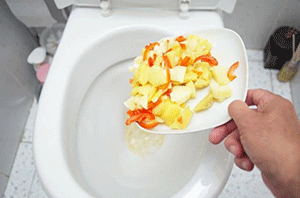
Hair
Hair does not break down in water and can easily accumulate in pipes, forming clumps that can cause blockages. This is especially problematic in bathroom drains where hair is more likely to be flushed. Collect hair from brushes and drains and dispose of it in the trash.
Cotton Balls and Swabs
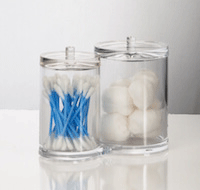
Cotton balls and swabs are designed to be absorbent and do not break down in water. Flushing these items can lead to blockages similar to those caused by paper towels and wipes. Dispose of them in the trash instead.
Dental Floss
Dental floss is made from non-biodegradable materials like nylon or Teflon and can easily become entangled in plumbing, causing blockages. Floss should be disposed of in the trash to prevent these issues.
Toys and Other Small Objects
Small items such as toys, jewelry, or other non-biodegradable objects can easily get stuck in your plumbing and cause blockages. These items can disrupt the flow in your pipes and lead to costly repairs. Always keep these objects away from the toilet and dispose of them properly.
By understanding and adhering to these disposal guidelines, you can help prevent plumbing problems, protect the environment, and ensure that your home’s plumbing system functions smoothly. Educating family members and guests about proper toilet use and disposal practices is also essential for maintaining a clean and efficient plumbing system.
